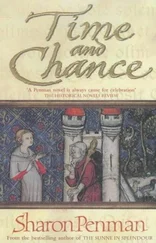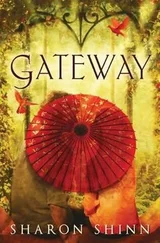Sharon Shinn - Reader And Raelynx
Здесь есть возможность читать онлайн «Sharon Shinn - Reader And Raelynx» весь текст электронной книги совершенно бесплатно (целиком полную версию без сокращений). В некоторых случаях можно слушать аудио, скачать через торрент в формате fb2 и присутствует краткое содержание. Жанр: Проза, на английском языке. Описание произведения, (предисловие) а так же отзывы посетителей доступны на портале библиотеки ЛибКат.
- Название:Reader And Raelynx
- Автор:
- Жанр:
- Год:неизвестен
- ISBN:нет данных
- Рейтинг книги:5 / 5. Голосов: 1
-
Избранное:Добавить в избранное
- Отзывы:
-
Ваша оценка:
- 100
- 1
- 2
- 3
- 4
- 5
Reader And Raelynx: краткое содержание, описание и аннотация
Предлагаем к чтению аннотацию, описание, краткое содержание или предисловие (зависит от того, что написал сам автор книги «Reader And Raelynx»). Если вы не нашли необходимую информацию о книге — напишите в комментариях, мы постараемся отыскать её.
Reader And Raelynx — читать онлайн бесплатно полную книгу (весь текст) целиком
Ниже представлен текст книги, разбитый по страницам. Система сохранения места последней прочитанной страницы, позволяет с удобством читать онлайн бесплатно книгу «Reader And Raelynx», без необходимости каждый раз заново искать на чём Вы остановились. Поставьте закладку, и сможете в любой момент перейти на страницу, на которой закончили чтение.
Интервал:
Закладка:
Cammon wrinkled his nose. “I don’t bother much with reading,” he said. “I’d much rather hear someone tell a story.”
“I used to read a great deal,” she said. “There was nothing else to do.”
He found that impossible to understand. “I suppose a princess doesn’t really have work to do, but-shopping? riding? entertaining visitors? Anything except reading!”
Amalie glanced at Valri, but the queen appeared deeply engrossed in her letter. “My father was always afraid for my safety,” she said. “For years, he didn’t want me to leave the palace at all. And even when visitors were here-oh, I almost never got a chance to meet them. Kirra has spent half her life at the palace, you know, and I never spent more than a few hours with her until she joined us at Rappengrass last summer.”
“But then-who did you talk to?” Cammon asked. His parents had left him pretty much to his own devices, but it wasn’t like they had locked him in a room. He had always struck up acquaintances with the kitchen maids or the carters’ sons. He had hated to be alone-still did. He didn’t think he would have been able to bear the sort of solitude Amalie described.
“My mother and I were very close, while she was alive,” Amalie said. She had dropped her gaze. He had the sudden swift impression that this was something she found difficult to talk about, yet yearned to confide. “And I had nurses and tutors who were kind to me. My old nurse only died a year ago, and I would spend the day with her sometimes. She could hardly see at all by the end, so I would read to her for hours.”
He was staring at her, but she had not lifted her eyes. What a terrible existence! Bleak beyond description! “And you never left the palace?” he asked in a quiet voice.
“Not to go shopping in the market. Not to visit friends.” She glanced up now, and there was a faint smile on her face, but it was wistful. “My mother and I would go to Merrenstow for weeks at a time, and I always liked that. Uncle Romar was her brother, you know, and he has a wonderful house. Of course, none of my cousins were allowed to visit while I was there, but my grandmother always insisted on coming, and she was my favorite person in the world when I was little. She taught me how to bake bread and pluck a chicken. She was Twelfth House, you know, very noble, but she said even a marlady should be able to cook a meal if she had to, and she thought a princess should as well.”
So many things to answer in that particular anecdote, but Cammon stupidly found himself asking the most ridiculous question. “You know how to pluck a chicken?”
She dissolved into laughter, and Valri looked over with a frown on her face. Their merriment didn’t cause her too much alarm, though, for she instantly went back to her task.
“Not anymore,” Amalie said. “I haven’t done it in years. But if I was stranded on a deserted farm and there was nothing to eat but a few old hens, I think I could still remember how to do it. If someone wrung its neck for me first.”
“I can’t imagine you ever being stranded in such a way.”
“I could make a loaf of bread, too, if the ingredients were there. After my grandmother died, I was afraid I would forget. So at night I would lie awake and repeat the recipe and the steps out loud. I’m pretty sure it would be lumpy and lopsided, but I bet we could eat it.”
He grinned. “We should go down to the kitchens someday. See if the cooks will let you bake. How can they refuse you? You’re the princess.”
She laughed. “What a good idea. Maybe we should.”
He glanced at Valri again, but the queen had pulled out a fresh sheet of paper and was staring down at it as if waiting for it to dictate the proper words. “What happened,” he asked, his voice very low, “when your mother died? How did she die?”
Immediately, Amalie’s face was very grave, but she did not look angry the subject had been broached. “Fever,” she said sadly. “One day she was fine. We had spent the day in the gardens. I remember that we laughed and laughed, but I can’t remember what was so funny. I was thirteen. She had been telling me for weeks that she would have the dressmakers in to fit me for a new wardrobe, that soon I would need to attend some small dinners and meet some of the prominent families. I was very excited about the idea. And then the next day she had a fever, and two days later she was dead.” Amalie shook her head. “It was so fast-I didn’t have time to think about it. I didn’t have time to prepare. ” She lifted her dark eyes to his face; she looked as if she was exercising extreme willpower to keep from crying.
“I’m so sorry,” he said. He couldn’t think of another thing to say.
She shook her head again. “The thing is, I knew she was sick,” she said. “Two summers before, she had begun to have these pains. And she had lost weight. We didn’t go to Merrenstow that year, and we always went to Merrenstow. I knew she was sick, but I didn’t realize how sick. I didn’t realize she could die.”
“No,” he said. “It never occurred to me, either. That my parents could die. Why would they? It never crossed my mind.”
She gave him a swift, tiny smile. “Whereas I’ve always known my father could die. Since I was quite young, everyone has made it clear that I will take the throne upon his death. But when I was young, I didn’t think about it as being an occasion for grief. I imagined how solemn I would be when they put the crown on my head, and I imagined what color dress I would wear to my coronation.” Cammon laughed out loud, and her smile grew a little wider. “I imagined what it would be like to be queen, I just didn’t imagine what it would be like to lose my father. Once my mother died, I suddenly understood.”
“Are you close to your father?” he asked curiously. “It does not seem as if you spend much time with him.”
She nodded. “I love him dearly,” she said. “He’s so busy that I don’t see him much, but he usually comes by every morning or every night and spends half an hour just with me. We talk about everything. My mother’s death was such a blow to him. I think it was years before he recovered.”
Cammon couldn’t help himself; he sent one more glance in the queen’s direction. “It must have been very strange,” he said cautiously, “when he remarried. And someone so young. How soon did Valri come to the palace after your mother died?”
“Oh, she was already here,” Amalie said.
He knew that his expression was dumbfounded. “She what ?”
“She had been living here about a year already. She followed them back from the Lirrens shortly after they visited there-oh, a year or so before my mother died. Valri and my mother had become close friends and my mother invited her to visit.”
Cammon’s head swiveled between Valri and Amalie. Valri was from the Lirrens? Maybe-maybe-Senneth had actually suspected such a thing once or twice, and of course the queen’s affection for the raelynx should have been an unmistakable clue. Then there was the fact that Cammon could not read her, as he could not read Ellynor; there was something impenetrable about Lirrenfolk, or perhaps that was merely the manifestation of their magic. And yet-
“Valri is from the Lirrenlands?” he repeated in a slow voice. “I don’t believe that is generally known.”
A flash of guilt crossed Amalie’s face. “I probably shouldn’t have told you, then,” she said. “Please don’t mention it to Senneth or anyone else. I don’t know that it is exactly a secret, and yet my father goes to some pains not to raise any questions about her. People already think Valri is strange, and some of them even think she’s a mystic. If they knew she was from the Lirrens as well-”
Читать дальшеИнтервал:
Закладка:
Похожие книги на «Reader And Raelynx»
Представляем Вашему вниманию похожие книги на «Reader And Raelynx» списком для выбора. Мы отобрали схожую по названию и смыслу литературу в надежде предоставить читателям больше вариантов отыскать новые, интересные, ещё непрочитанные произведения.
Обсуждение, отзывы о книге «Reader And Raelynx» и просто собственные мнения читателей. Оставьте ваши комментарии, напишите, что Вы думаете о произведении, его смысле или главных героях. Укажите что конкретно понравилось, а что нет, и почему Вы так считаете.












